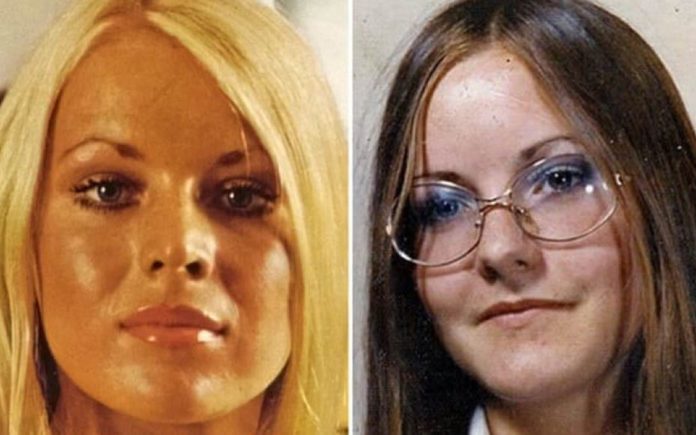New contributor Elizabeth J. Bond examines the cases of the murders of Eve Stratford and Lynne Weedon in 1975 and suggests how they could finally be solved
I first came across the sad and likely linked stories of Eve Stratford and Lynne Weedon a few years ago, and these cold cases have lingered in my mind ever since.
Back in March 1975, an aspiring model and ‘bunny girl’ by the name of Eve Stratford was brutally murdered and sexually assaulted in the Leytonstone flat she shared with her boyfriend. Police conducted an investigation, but nothing substantial emerged and the case went cold.
Six months later, a 16-year-old Hounslow schoolgirl called Lynne Weedon went out with friends to celebrate her O-level results. At about 11:00 pm, she decided to head home on her own, and took a shortcut along an alleyway known as ‘Short Hedges.’ Minutes later, she was viciously attacked. She was hit over the head with a blunt instrument, dragged into the grounds of a nearby sub-station, sexually assaulted, and left for dead. She was found early the next morning, but never regained consciousness, and died in hospital a week later.
At the time, there was nothing to suggest that these two murders were connected. It was only in the early 2000s that a breakthrough was made. Samples taken from the scenes were analysed, a DNA profile was extracted, and a match was found. Appeals for information were subsequently made in the media, along with an offer of a £40,000 reward. The case featured on an episode of Crimewatch, which you can watch at the end of this article.
But there has been no progress since then, and the murderer has still not been identified. Sadly, the odds of solving old cases are usually not high. However, in recent months, I’ve become convinced that it more than possible to do so here, and it’s frustrating that the authorities haven’t pursued this avenue.
DNA kits – such as those sold by the likes of Ancestry.com, 23 and Me, and My Heritage have become increasingly popular over the years. Ancestry alone has over 15 million DNA profiles. With a database of this size, the odds of finding biological relatives on there are pretty much 100%. I’ve done a test myself, and it linked me to over 150 third and fourth cousins.
In turn, a practice known as ‘genetic genealogy’ has sprung up. This has been especially useful for foundlings and adoptees. In some cases, even a third cousin match has been enough to ‘reverse-engineer’ a family tree to work out who their biological parents were.
In the USA, they’ve gone one step further. Genealogist CeCe Moore has used the same technique on the genomics website GEDmatch to help US law enforcement to crack various cold cases. Most famously, her work led to the conviction of William Earl Talbot II for the murders of Jay Cook and Tanya van Cuylenborg this year.
So, the question is – why aren’t we doing the same thing here in the UK?
Unfortunately, the major genealogy companies fear that if they allowed a suspect’s DNA to be uploaded, it would undermine confidence in their privacy policies. In fact, privacy concerns became so great after various arrests and convictions in the USA that ‘GEDmatch’ now requires its users to ‘opt in’ to allow their DNA to be used for law enforcement purposes.
To me, the privacy argument makes little sense. Firstly, if you have committed no crime yourself, then you have nothing to worry about. Chelsea Rustad, the second cousin of William Earl Talbott II, fully supported the police’s use of her DNA to secure his conviction, even without her prior permission. It should also be noted that the US police did not arrest Talbott solely on the basis of CeCe Moore identifying him. They first watched him for several days, obtained his DNA from a discarded cup, and ran extra tests to make doubly sure they had got the right person.
Secondly, shouldn’t the rights of the murder victims and their families outweigh the murderer’s right to privacy? Not to mention the right of the general public to be safe from someone who is clearly a danger?
I appreciate that the murderer of Eve Stratford and Lynne Weedon could now be dead. But if not, then he needs to be found and brought to justice. In any event, identifying him would at least bring the remaining family members some closure.
I would therefore urge all genealogy websites, police, and lawmakers to rethink privacy policies for cases like this. If nothing else, it would certainly help to make the world a safer place.
Elizabeth Bond is a freelance writer and translator.
Facebook: @TheSteepleTimes
Instagram: @TheSteepleTimes
Twitter: @SteepleTimes and @ElizabethJBond








These poor ladies deserve justice. Thank you for highlighting this Elizabeth.
I for one believe justice should always be done, and it doesn’t matter how long it takes. We have recently had 2 cold case murders solved here. One was 45 years old and the other almost 50 years. We owe it to these girls and other victims to bring their perpetrators to justice no matter how long it takes, and how much it costs, If we don’t, society should hang it’s head in shame.